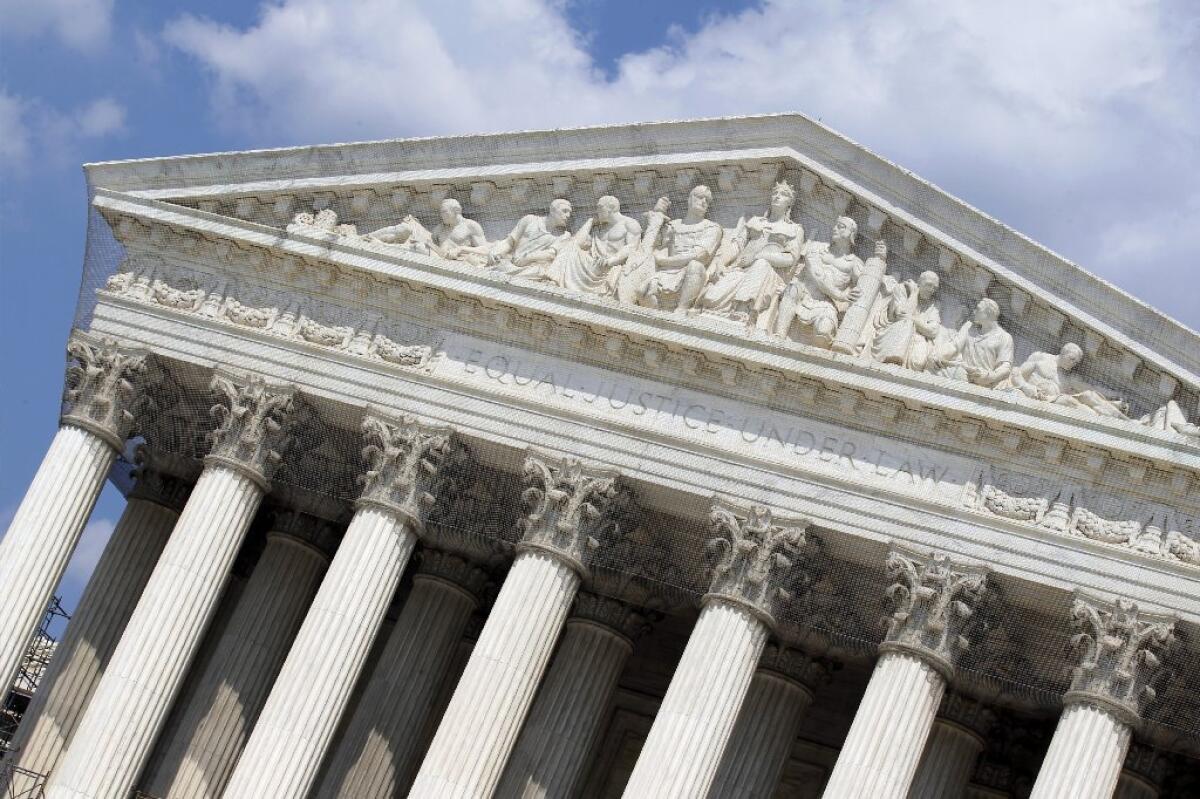The Supreme Court didn’t make the cut in Obama’s campaign

Among the cleverest last-minute election messages to make it on to my Facebook feed came from Planned Parenthood Action Fund, the nonpartisan advocacy and political arm of the Planned Parenthood Federation of America. It’s a mock front page of the New York Times dated June 20, 2014, that is font-perfect in its mimicry of the paper’s design and typography. The Second Coming-size headline is “High Court Overturns Roe v. Wade 5-4.”
Underneath, aping the Times’ treatment of past Supreme Court decisions, are headshots of the justices in the majority and minority and pull-quotes from the opinions. (The majority opinion is pretty sophomoric, upsetting the verisimilitude of the parody.) One unfamiliar face in the anti-Roe cohort is that of “Justice” Brett Kavanaugh, appointed by President Mitt Romney to replace the retired or departed Justice Ruth Bader Ginsburg.
I’m not sure Kavanaugh, a somewhat unpredictable young conservative who was appointed to the U.S. Court of Appeals for the District of Columbia by President George W. Bush, would be a sure bet to overturn Roe. Though he probably would be more likely to do so than a President Obama replacement for Ginsburg.
But what most struck me about the Planned Parenthood parody was how out of sync it was with Obama’s own campaign.
Yes, the Obama website contrasts the president’s support for abortion rights with Mitt Romney’s belief that Roe vs. Wade should be overturned. And in the vice presidential debate, Joe Biden shoehorned this comment into his answer about how Catholicism affected his views on abortion: “The next president will get one or two Supreme Court nominees. That’s how close Roe v. Wade is.”
But possible Romney Supreme Court appointments haven’t been a major motif of the Obama campaign. Why not? One reason is the conventional wisdom that voters don’t care about the court as an issue. But another might be that there are risks to portraying Supreme Court justices as pawns of the president who appointed them. Obama benefited from the perception that Chief Justice John G. Roberts Jr. was acting as other than a Republican apparatchik when he voted to uphold the healthcare reform law.
PHOTOS: California voters head to the polls
Likewise, if the Supreme Court were to strike down the Defense of Marriage Act, the administration and other supporters of same-sex marriage would likely point to the “nonpolitical” nature of the court as proof of the decision’s legitimacy. The truth is that both parties (depending on the case) benefit from the perception that the justices aren’t partisans.
Obama is not above taking shots at conservatives on the Supreme Court, as he did in his State of the Union dig at the Citizens United campaign-finance decision. But he didn’t push the issue of how Romney might add to their number. If he loses, that decision may figure in the recriminations -- at least at Planned Parenthood HQ.
ALSO:
McManus: The likely winner -- gridlock
Goldberg: Nate Silver’s numbers racket
The donations Sandy’s victims don’t need
More to Read
A cure for the common opinion
Get thought-provoking perspectives with our weekly newsletter.
You may occasionally receive promotional content from the Los Angeles Times.











